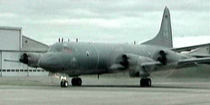
Military Funding: Not Harper’s Forte

All the while, Harper is now stating that he can fund untendered contracts for fighter jets. No one knows the exact price of these planes, but to Harper, that doesn’t matter. Just like on March 25, 2002 when he wanted to join Iraq, he stated, “I don’t know all the facts on Iraq, but I think we should work closely with the Americans.”
One of Harper’s main promises – regarding the Arctic – got slashed.
The man who said, “You don’t defend national sovereignty with flags; you need forces on the ground, ships in the sea, and proper surveillance,” canceled air force surveillance in the winter of 2007.
Harper has stated that, “Canada has a choice when it comes to defending our sovereignty over the Arctic. We either use it or lose it. … Canada’s Arctic is central to our identity as a northern nation. It is part of our history. And it represents the tremendous potential of our future.” But in two elected terms, he hasn’t made anything from it. Canada’s winter travel capacity is far weaker than that of Russia and the United States and Canada currently isn’t using the passage that it claims is legally theirs – while the other countries all the while stake their claims. In the International Courts, such a finding of Canada’s legal occupations over the north will be difficult to settle if it cannot access or use the north.
Dan Middlemiss, a defense expert and professor at Dalhousie University said, “The reality of lack of funds for operations strikes home. We’ve seen this earlier this year with the navy’s reduction in its planned exercises at the end of its fiscal year.”
In 2010, Harper slashed the navy’s coast patrol fleet in half due to a shortage of money and sailors. Twelve vessels that are used to patrol the Arctic, Atlantic and Pacific coasts have been removed from service.
While the navy was cut in two, Defense Minister Peter MacKay made the case that the Conservatives were ramping up funding.
“We’re investing in the Canadian Forces in unprecedented numbers,” he said. “The Canadian navy, in its 100th anniversary, will have more money than it’s had in a 100 years.”
However the budget contradicts MacKay’s claim. Canada’s Maritime Forces were allocated $2.1 billion in 2009 and allocated $1.97 billion in 2010.
Meanwhile, the programs that helped the military cope with suicides, marital breakdowns, and combat-related stress are being lost in the view of the personnel.
Monthly reports given to the Chaplain General highlight funding cuts that affect some chaplaincy training courses, retreats and meetings that help military personnel cope with their environment.
With Canadian troops stationed in Afghanistan, these programs are necessary. A report from last July states:
“Nearly every chaplain in the (Canadian Forces) has felt the effects of the Afghanistan deployment. Yet we are heading into a period where we will be unable to provide chaplains with the very programs that were developed to mitigate these effects.”
The report states that funding for Maritime Forces Atlantic was reduced from $105,000 in the previous year to $79,000.
The Defense Department spokeswoman told CTV that no one could comment on the issue.
The documents also suggest that morale is also suffering as a result.
A survey done three years ago found that 52% of chaplains were at medium to high risk for anxiety or depressive disorders.
With the Conservative Party acting contrarily to their promise to build the military, they now promise an untendered jet-fighter deal when they cut several other military facilities. Lack of funding was the main cause for the cuts in the previously stated military domain, what makes Harper so sure that he can afford F-35s where the true price isn’t known by anybody, the Americans warn are a lot more expensive than Canadian figures and American Democrats and Republicans are somewhat dissatisfied with the quality and results of the model that Canada is now purchasing.
It is not new for Harper to follow the United States, and it is not new that he doesn’t research or present all the facts prior to a decision. On March 25, 2002, Harper said in Report Newsmagazine, “I don’t know all the facts on Iraq, but I think we should work closely with the Americans.”



